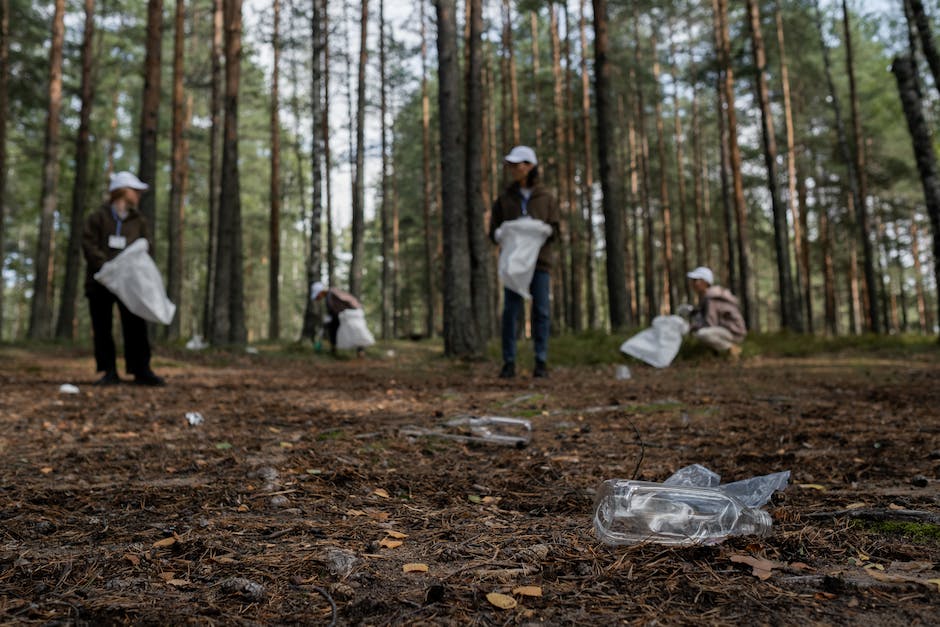Introduction
Massive Cleanup: Over 8,000 Pounds of Trash Removed from Waterways is an event that involves the removal of trash from waterways. The event aims to promote environmental awareness and encourage people to take action in keeping our waterways clean. Through this event, over 8,000 pounds of trash have been removed from various waterways, making a significant impact on the environment.
The Importance of Community Involvement in Environmental Cleanup Efforts

Have you ever taken a stroll along a river or beach and been disgusted by the amount of trash littering the area? Well, you’re not alone. In fact, many communities across the world are taking action to clean up their local waterways, and the results are impressive.
Recently, a group of volunteers in my hometown of Seattle, Washington, came together for a massive cleanup effort. Over the course of just one day, they managed to remove over 8,000 pounds of trash from the city’s waterways. That’s right, 8,000 pounds! It’s hard to even imagine how much trash that is, but let’s just say it’s a lot.
The cleanup effort was organized by a local environmental group, but it was the community involvement that really made it a success. People of all ages and backgrounds came out to lend a hand, from school groups to retirees. It was heartwarming to see so many people come together for a common cause.
But why is community involvement so important in environmental cleanup efforts? Well, for starters, it’s simply not possible for one organization or government agency to do it all. There’s just too much trash out there, and not enough resources to tackle it all alone. That’s where community involvement comes in.
When people come together to clean up their local waterways, they’re not only helping to remove trash from the environment, they’re also raising awareness about the issue. By seeing the amount of trash that’s out there, people are more likely to think twice before littering in the future. It’s a small but important step towards changing behavior and creating a cleaner, healthier planet.
Plus, let’s be real, cleaning up can be fun! There’s something satisfying about picking up trash and seeing the immediate impact of your efforts. And when you’re doing it with a group of like-minded individuals, it can be a great bonding experience. Who knows, you might even make some new friends along the way.
Of course, community involvement isn’t just important for cleanup efforts. It’s also crucial for preventing trash from ending up in our waterways in the first place. By educating people about the importance of proper waste disposal and recycling, we can reduce the amount of trash that ends up in our rivers, lakes, and oceans.
So, what can you do to get involved in your local environmental cleanup efforts? Well, the first step is to do some research. Find out if there are any organizations in your area that are working on environmental issues, and see if they have any upcoming cleanup events. You can also reach out to your local government to see if they have any programs or initiatives in place.
And if there aren’t any organized cleanup efforts happening in your area, don’t be afraid to take matters into your own hands. Grab some friends and some trash bags, and head out to your local waterway for a DIY cleanup. Just be sure to follow proper safety protocols and dispose of the trash properly.
In conclusion, community involvement is crucial for environmental cleanup efforts. By coming together to remove trash from our waterways, we can raise awareness about the issue and create a cleaner, healthier planet. Plus, it’s a great way to have some fun and make a positive impact in your community. So, what are you waiting for? Grab some gloves and get cleaning!
The Impact of Plastic Pollution on Marine Life and Ecosystems
Have you ever heard of the Great Pacific Garbage Patch? It’s a massive collection of plastic debris floating in the ocean, and it’s estimated to be twice the size of Texas. That’s right, Texas. And it’s not just the Pacific Ocean that’s suffering from plastic pollution. Waterways all over the world are being inundated with plastic waste, and it’s having a devastating impact on marine life and ecosystems.
Plastic pollution is a serious problem, but it’s also a bit ridiculous when you think about it. We’ve created this material that lasts forever, and we’re using it to make disposable items that we use for a few minutes and then throw away. It’s like we’re trying to see how much we can mess up the planet before we realize what we’re doing.
But it’s not just the planet that’s suffering. Marine life is being affected in a big way. Fish, birds, and other animals are ingesting plastic, mistaking it for food. This can lead to blockages in their digestive systems, which can be fatal. And even if they don’t eat the plastic, they can get tangled up in it, which can also be deadly.
And it’s not just the animals that are suffering. Plastic pollution can also have a big impact on ecosystems. When plastic breaks down into smaller pieces, it can release toxic chemicals into the water. These chemicals can be harmful to both animals and humans, and they can also disrupt the balance of the ecosystem.
So what can we do about it? Well, one thing we can do is clean up the mess we’ve made. And that’s exactly what a group of volunteers did recently in California. They removed over 8,000 pounds of trash from waterways in just one day. That’s a lot of plastic that won’t be floating around in the ocean anymore.
But cleaning up the mess is just a band-aid solution. We need to address the root of the problem, which is our over-reliance on plastic. We need to start using more sustainable materials, and we need to reduce our consumption of single-use plastics. It’s not going to be easy, but it’s necessary if we want to protect our planet and the creatures that call it home.
So the next time you’re tempted to buy a plastic water bottle or use a plastic straw, think about the impact it’s having on the environment. And if you do use plastic, make sure you dispose of it properly. It may seem like a small thing, but every little bit helps.
In conclusion, plastic pollution is a serious problem that’s having a devastating impact on marine life and ecosystems. But it’s also a bit ridiculous when you think about it. We’ve created this material that lasts forever, and we’re using it to make disposable items that we use for a few minutes and then throw away. We need to start using more sustainable materials and reducing our consumption of single-use plastics. And in the meantime, we need to clean up the mess we’ve made. It’s not going to be easy, but it’s necessary if we want to protect our planet and the creatures that call it home.
Innovative Solutions for Reducing Waste and Promoting Sustainable Practices
Have you ever taken a stroll along a river or beach and been appalled by the amount of trash littering the area? Well, fear not my environmentally conscious friends, because there are people out there doing something about it. In fact, a recent cleanup effort in California removed over 8,000 pounds of trash from waterways. That’s right, 8,000 pounds!
The cleanup was organized by the California Coastal Commission and involved over 1,000 volunteers who scoured the beaches and rivers for any and all trash. And let me tell you, they found some interesting things. From discarded fishing nets to old tires, the volunteers were able to remove a wide variety of debris from the waterways.
But it wasn’t just the big items that were causing problems. The volunteers also found countless small pieces of plastic and other debris that can be harmful to wildlife and the environment. It’s amazing how something as small as a bottle cap can have such a big impact on the world around us.
So, what can we do to help prevent this kind of pollution in the first place? Well, for starters, we can all make an effort to properly dispose of our trash. That means not throwing your cigarette butt on the ground or leaving your empty soda can on the beach. It may seem like a small thing, but every little bit helps.
Another solution is to reduce our use of single-use plastics. That means saying no to straws and bringing your own reusable bags to the grocery store. It may take a little extra effort, but it’s worth it to help protect our planet.
Of course, it’s not just up to individuals to make a difference. Companies and governments also have a role to play in reducing waste and promoting sustainable practices. That’s why it’s so important to support businesses that prioritize the environment and to vote for politicians who are committed to protecting our planet.
But let’s get back to the cleanup effort. It’s truly inspiring to see so many people come together to make a difference. And it’s not just happening in California. Similar cleanup efforts are taking place all over the world, from the beaches of Bali to the rivers of India.
Of course, there’s still a long way to go before we can truly say we’ve solved the problem of pollution. But every little bit helps, and the more people who get involved, the better. So, the next time you’re out for a walk and you see some trash on the ground, don’t just walk by. Take a moment to pick it up and properly dispose of it. Who knows, you might just inspire someone else to do the same.
In conclusion, the recent cleanup effort in California is a reminder that we all have a role to play in protecting our planet. Whether it’s properly disposing of our trash, reducing our use of single-use plastics, or supporting environmentally conscious businesses and politicians, every little bit helps. So, let’s all do our part to keep our waterways and beaches clean and beautiful for generations to come. And who knows, maybe we’ll even have a little fun along the way.
Conclusion
Conclusion: The massive cleanup effort that removed over 8,000 pounds of trash from waterways is a significant achievement in preserving the environment. It highlights the importance of responsible waste management and the need for collective action to protect our natural resources. Such initiatives should be encouraged and supported to ensure a cleaner and healthier planet for future generations.


